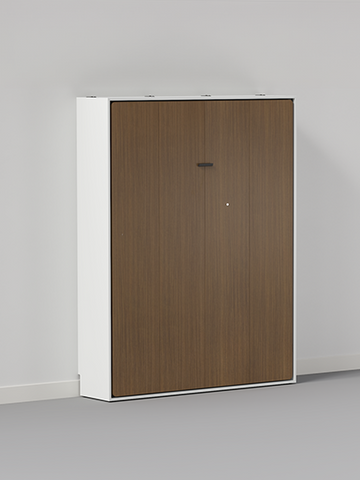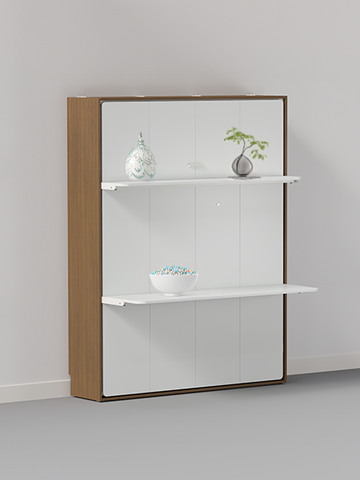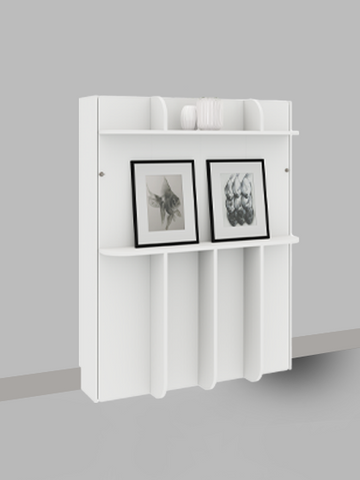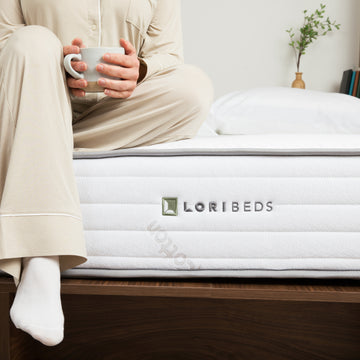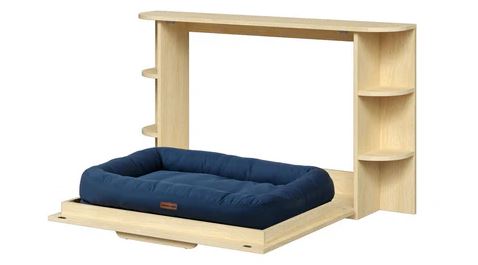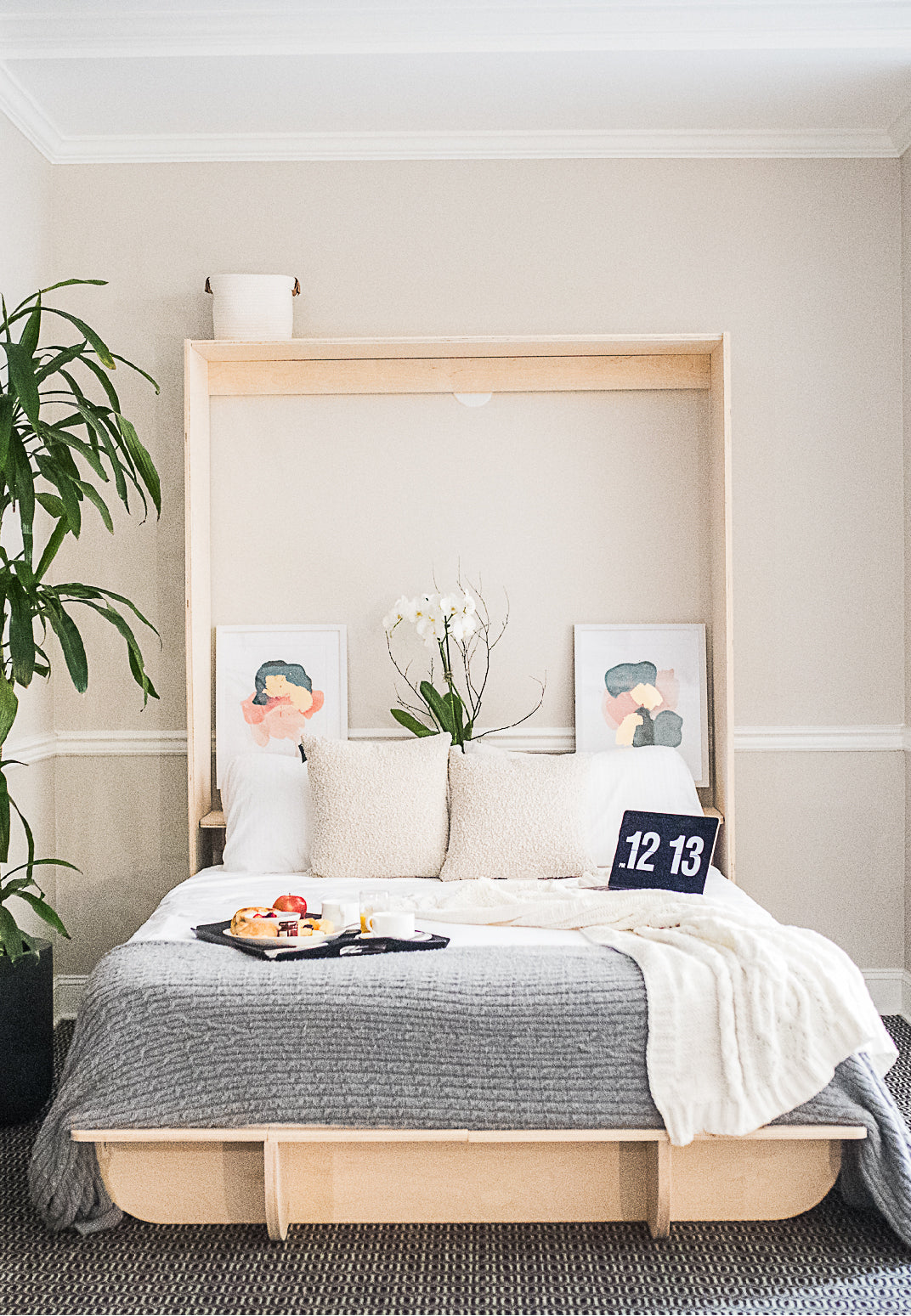Murphy beds, or wall beds, are meant to fold up horizontally or vertically into a wall or cabinet when not in use. These space-saving beds are popular options for sleeping spaces, such as guest rooms and small apartments. They let you maximize the floor space for any purpose by day and provide a sleeping area at night.
When looking for a Murphy bed, one factor to consider is mattress thickness. Striking a balance between comfort and functionality helps you enhance your sleeping experience. The mattress should fit within the bed frame and properly fold without any hitch. Looking for the ideal mattress in terms of thickness lets you use the bed easily.
Key Takeaways:
- Murphy beds can only accommodate mattresses that are up to 12 inches thick.
- Although thick mattresses may be more expensive than their thinner counterparts, they do a good job of ensuring users' comfort.
- You need to consider your sleeping position and body weight when deciding the mattress's thickness.
Discover a range of designs that you may like for a Murphy bed by clicking the button below!
INDEX
How Thick Should a Mattress Be?
Factors to Consider When Choosing Mattress Thickness
Getting a Mattress for Your Murphy Bed
The Benefits of Optimal Mattress Thickness
Tips for Preserving the Mattress's Thickness
Get the Right Mattress for Your Murphy Bed
How Thick Should a Mattress Be?
The standard mattress thickness should be around eight to 12 inches, but it can vary depending on the type, purpose, and level of comfort it gives. Here's a range:
- Thin Mattresses: Measuring around five to eight inches, thin mattresses are often used for children's beds, bunk beds, or temporary sleeping areas. They can't provide much support or cushioning for adults or heavier people.
- Standard Mattresses: They're common for regular use in most bedrooms. They can offer a balanced mix of comfort and support for most sleepers.
- Thick Mattresses: These luxurious mattresses, around 12 to 16 inches thick, are for heavier people since they have more cushioning and contouring, making them heavier and more pricey.
A standard mattress is already enough for most people to sleep on. It gives enough support that a thin mattress may not give and can be handled easily, unlike the thicker ones.
Factors to Consider When Choosing Mattress Thickness
It can be challenging to choose the right mattress thickness for your convertible beds. That's why you need to take these factors into account in the selection process:
1) Sleeping Position
How you sleep determines how thick your mattress will be. These are some examples:
- Side Sleepers: If you sleep on your side, you need a thicker mattress for better cushioning and pressure relief, particularly on the hips and shoulders.
- Back Sleepers: If you sleep on your back, you need a mattress with medium thickness to provide ample support.
- Stomach Sleepers: Use a thinner and firmer mattress to keep a neutral spine position if you sleep on your stomach.
2) Body Weight
Being on the heavy side requires a thicker mattress for better support and to prevent excessive sinking. For those who weigh lighter, the thinner comfort layers of a thin mattress are enough to support the body while sleeping.
3) Mattress Type
Hybrid mattresses are extra thick due to layers of coils and foams that provide cushioning and support. Memory foam or latex, on the other hand, relieves pressure and conforms to the body.
4) Firmness Preference
Thick mattresses have more cushion and plushness, while thin mattresses can feel firmer. Align your sleeping needs and comfort preferences with the level of firmness you want for your mattress.
Getting a Mattress for Your Murphy Bed
Consider these factors when getting a mattress for your fold-down beds:
Weight
The mattress's weight will determine whether it suits the Murphy bed. Heavy mattresses can strain the folding mechanism and make it harder to raise and lower the bed. Lightweight mattresses place less weight on the hardware of Murphy folding beds over time. Foam or latex mattresses are lighter and better suited for cabinet beds.
Compatibility with the Folding Mechanism
Not all mattresses can withstand folding and vertical or horizontal storage for a long period of time. Some mattresses, such as those with innerspring, can become uneven and lose their shape with regular folding. A memory foam, hybrid, or latex mattress is compatible with wall-mounted beds for its flexibility—it can easily return to its original shape.
Thickness
Most Murphy wall beds have a limited depth when folded up, so the ideal mattress thickness should be around 10-12 inches thick. This balances the comfort of thick mattresses, which can provide space in your Murphy bed frame.
Other brands may argue that a thicker mattress is more comfortable for users, especially the elderly with mobility issues. A thick mattress helps them get in and out of bed without bending too low, ensuring their comfort and accessibility.
Firmness Level
The right firmness of the Murphy bed mattress depends on your personal preference. Make sure the mattress gives enough support while it's folded up vertically. Firm mattresses can prevent sagging or indentations later on.
Material Type
Another factor in choosing a mattress for the hidden beds is the type of material used. Memory foam or latex mattresses are resilient and flexible, so they’re a better choice.
Air Circulation and Ventilation
Since Murphy beds can be folded against cabinets and walls, the mattress may have limited airflow. Choose a mattress with breathable materials to prevent moisture and odor buildup.
Size and Fit
Make sure the mattress fits the Murphy bed frame perfectly. Measure the bed frame with a ruler or tape measure and get a mattress of the same size. A mattress too large for the Murphy bed may result in early wear and tear and replacement, making you spend more instead of saving money.
Save more when you buy the Murphy bed today! Get the bed of your dreams now.
Get $200 Off on the Murphy Bed
The Benefits of Optimal Mattress Thickness
Here's how a mattress with optimal thickness can bring you something good:
Enhanced Motion Isolation
Thicker mattresses are made up of layers of foam, coils, and other materials that absorb and lessen movement across the surface. This feature is important for couples or two people in the family sharing a single bed. One person's movements, like turning or getting out of bed, won't disrupt the other person's sleep.
The additional layers inside these mattresses can isolate motion better than thin mattresses and make you experience uninterrupted rest if you're one of those lightweight sleepers.
Pressure Relief
The thick, extra-cushioned layers of a thick mattress adjust to your body shape and distribute weight more evenly. They can reduce pressure on the knees, shoulders, and hips, where most of the common stress points are. Side sleepers will benefit from having a thick mattress, as it prevents discomfort and helps relieve pain in these areas.
Longer Lifespan
The complex construction of thick mattresses makes them last longer. They can better withstand everyday use without losing their ability to support your body compared to thinner mattresses. These mattresses can retain their shape and comfort over time and provide you with consistent support for years, even if you're using Murphy hideaway beds.
Improved Spinal Alignment
A thick mattress can provide superior support to your spine by keeping it neutrally aligned while you sleep. Proper spine alignment is important to avoid back pain, stiffness, and other kinds of discomfort. When your mattress is thick enough, it cradles your body and aligns your spine, freeing you from aches and pains upon waking up.
Temperature Regulation
Latex and gel-infused memory foam mattresses are thick and have advanced cooling technology. These mattresses dissipate body heat and keep the mattress cool throughout the night. You'll find yourself tossing and turning every night when your mattress overheats because it doesn't regulate temperature.
Customizable Comfort Levels
A thicker mattress has multiple layers that range from soft to firm. Many brands have various firmness options to cater to your comfort preferences and sleeping positions and meet your needs. Some mattresses combine firmness and softness for a balanced feel that supports your body.
Aesthetic Appeal
Getting an extra thick mattress makes your bed appear luxurious and inviting. It adds a sense of comfort, elegance, and height, especially if you have pull-down beds at home. Pairing the thick mattress with the right bedding improves your sleeping space and creates a cozy ambiance.
Edge Support
Thick mattresses have reinforced edges, providing stability when you sleep or sit near the bed's edge. This feature is essential if you always use the bed to get in and out or sit on it. It prevents sinking and offers firm support without feeling like you're falling off the bed.
Tips for Preserving the Mattress's Thickness
Maintain the comfort, support, and lifespan of your mattress by taking care of it well. Here's how:
Use a Quality Mattress Protector
A breathable and waterproof mattress protector can protect your mattress from spills, dust, mites, stains, and allergens. It preserves the bed's integrity and minimizes mattress sagging and compression. Your mattress protector can be an entirely different color than the mattress.
Use a Mattress Topper
A mattress topper changes the feel of a mattress for extra pressure relief. Use a high-quality one to spare the bed's surface from wear and tear.
Rotate and Flip Regularly
It won't look too good if your mattress is worn out on one side. You need to:
- Rotate the mattress to a maximum of 180 degrees every three to six months. If the mattress is heavy and non-flippable, ask someone to help you lift and rotate the bed.
- Flip the mattress if it's a double-sided one to prevent sagging in one area and ensure it has the same thickness as the other sides. You will still need somebody else to help you flip the mattress if it’s too heavy to handle alone.
Avoid Jumping
If you have children at home, forbid them from jumping on the mattress too much or putting excessive weight on it. Consistent jumping can cause the mattress to lose its thickness as the years go on.
Keep It Clean
Ensuring a clean mattress is easy. Just follow these tips:
- Regularly vacuum the mattress to remove traces of dust and debris.
- In case of a stain or spill, spot-clean the mattress with the right cleaning solution.
- Don't use harsh chemicals on the mattress to avoid damaging the surface.
- Air out your mattress to let it breathe and be exposed to fresh air.
- Change all of the sheets, pillowcases, and blankets after drying the mattress.
Control Humidity and Temperature
Keep your room cool and dry to prevent mold from growing on your mattress. High humidity is an ideal breeding ground for molds, which can damage your bed's aesthetics and usability.
Limit Exposure to Sunlight
Direct sunlight can break down the bed's material in the long run. If possible, cover the mattress or keep it away from the sun to preserve its color and thickness. When installing the Murphy bed, make sure to position it away from the window or where sunlight can't shine on the mattress.
Follow Manufacturer Guidelines
To keep the mattress in good condition, read the guidelines and follow any specific care instructions about maintenance, cleaning, and support requirements. It would help if you watched some tutorials about keeping the mattress clean.
Get the Right Mattress for Your Murphy Bed
Understanding how thick you want your mattress for your Murphy bed to be is important to find the right balance of comfort and usability. Most Murphy bed frames can handle a mattress with a thickness of 12 inches, providing enough support without compromising the bed's mechanism. Choosing the appropriate thickness for your bed can ensure smooth operations, optimized space, and top-notch comfort for a good night's sleep.
Explore more of what Lori Beds has to offer. Find high-quality Murphy beds and mattresses of different designs and sizes that may suit your home.

